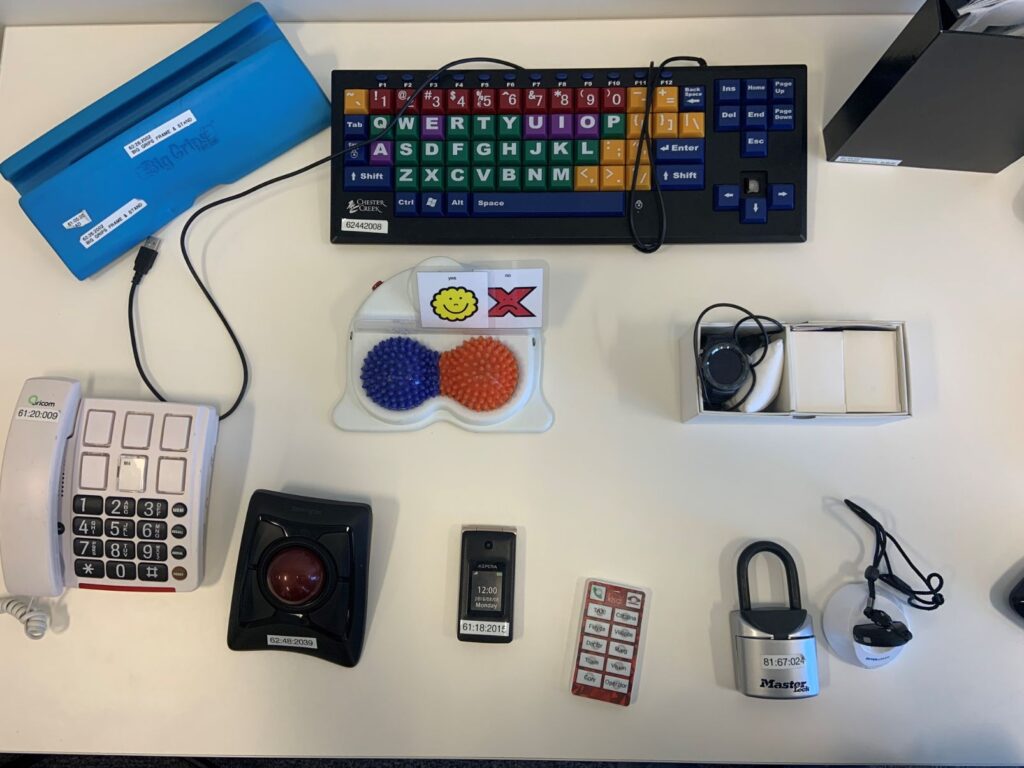A partnership between the University of Canberra (UC) and Assistive Technology Australia (ATA) is striving towards a permanent Independent Living Centre (ILC) for seniors and people with disability, starting with a pop-up earlier this week.
The pop-up centre hosted occupational therapy professionals and students at UC’s Health Hub, presenting a range of assistive living technologies for quality of life and independent living.
ATA CEO Robyn Chapman said people with a disability, seniors and health professionals were invited to the pop-up to experience the technology available.
Ms Chapman said two occupational therapists were present and people could come and discuss their assistive technology needs and find solutions to meet those needs.
“Assistive technology is vital to the lives of people with disability and to seniors and as those populations grow, they become more important,” she said.
“For people with disabilities, they enable participation in all the activities of life, and for seniors, people are able to stay at home for as long as possible without the need for institutional care.”

Previously there was an ILC locally run by Canberra Health, however, it is no longer open.
The range of technologies available include kitchen items for storing and preparing food, technologies to assist with eating and drinking, and mobility devices.
UC occupational therapy students Zara Daniells and Ella Cleary both completed a placement with ATA, and said it was incredible to see what the technology could do to enhance quality of life.
“We had a woman who was looking for a bin trolley. We all take our bins up to the kerb and she had a degenerative disease that was slowly making it harder and harder to do that herself,” Ms Daniells said.
“She wanted to maintain her independence and we found technology that exists that is a motorised trolley pusher, and it pushes your bin to the kerb with a little bit of guidance.”
“Occupational therapy is a huge branch of health and it covers everything that people want to participate in. Assistive technology is a large part of occupational therapy and there is so much to it and it helps of every way of life,” Ms Cleary added.
UC Associate Professor in Occupational Therapy Stephen Isbel said it would be beneficial to have these hands-on opportunities closer to home.
“[Students] have had to go to Sydney to do that, so having this pop-up clinic here, hopefully more regularly, will allow our students to do this in Canberra,” he said.
“The big plan would be to have this on campus at some stage really regularly in a dedicated spot and people could come in whenever they like.”
The pop-up ran on Tuesday 10 November 9am-4pm in UC’s Health Hub.



